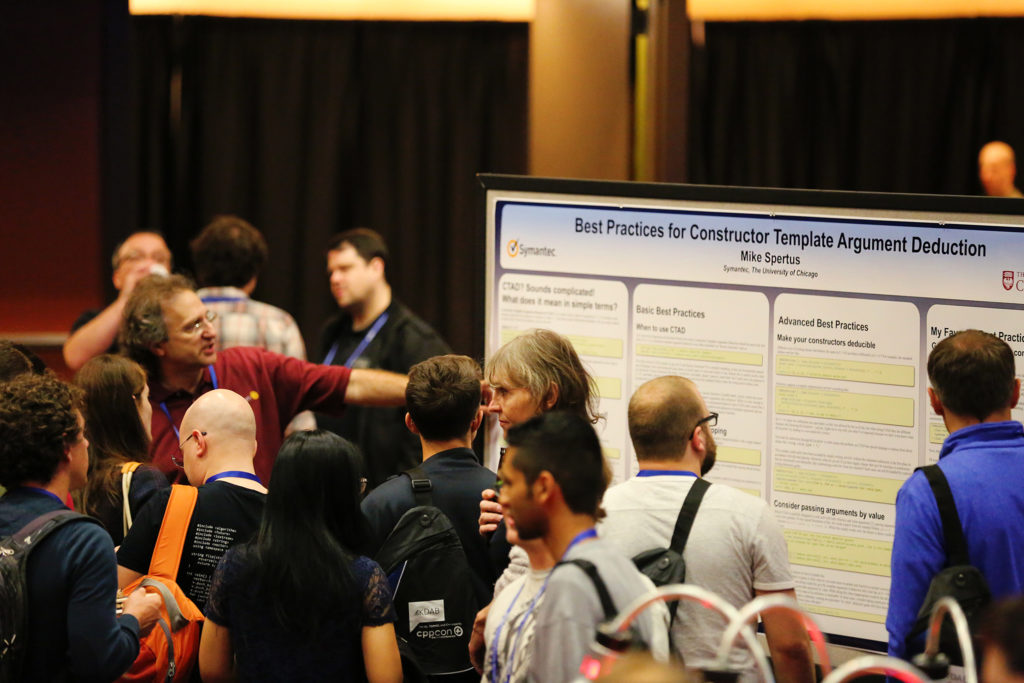In this week’s interview, Kevin chats with Klaus Iglberger about his upcoming class Modern C++ Design Patterns; we also find out more about the Back to Basics track and his talk on Move Semantics.
Call for Open Content Sessions
As we do every year, we offer Open Content session in the early morning, over lunch, and in the evening.
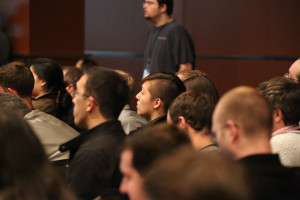
Open Content is just that, open! Attendees and regular program speakers alike can propose sessions on anything (related to C++) that interests them. These might feature a single facilitator leading a room through an exercise, activity or demo, a panel of 3-5 people taking questions from the room, a “hackathon” on a specific project, or an open conversation among the whole room. The projector is available for slides or public note taking.
Open Content is designed for flexibility so that a “Birds of a Feather” talk may be proposed even after the conference has begun. A speaker who gets a lot of post-talk questions may agree to host a Q&A session in the Open Content time. An attendee inspired by a session may host a session to explore a topic further or start on a group implementation of something.
Anyone can submit an open content session, you don’t need to be a conference speaker (or even a registered attendee). To submit, visit our Open Content Submissions page.
These sessions will be open in another way too – Open Content does not require conference registration. That’s right, everyone who is in the area is welcome to come and join us for all the early morning/lunch/evening sessions, including proposing or leading a session. This is part of our goal to be an inclusive conference for the entire C++ community.
Free Friday
All CppCon 2019 events on Friday, September 20th, do not require conference registration. That’s right, just like all our evening sessions (except ones involving food–the dinners and reception), all Friday sessions are open to the public without a conference registration. This includes talks by some of our popular speakers.
Presenter Interviews: Emery Berger
In this week’s presenter interview, Kevin talks with Professor Emery Berger about his time working with memory management in C++, what he is looking forward to at this years conference, and his session Mesh: Automatically Compacting Your C++ Application’s Memory.
Come back next week for another CppCon 2019 presenter interview.
Presenter Interviews: Matthew Butler
In this week’s presenter interview, Kevin chats with Matthew Butler today about his upcoming class at CppCon, Exploiting Modern C++: Building Highly-Dependable Software, his first WG21 meeting in Cologne, and his upcoming CppCon talk If You Can’t Open It, You Don’t Own It.
Stop by again next week for another CppCon 2019 presenter interview.
2019 Poster Program Announced
We’re pleased to announce that the 2019 Poster Program is now available! We have twelve outstanding entries this year, and encourage you to stop by and read all of them.
Lightning Talks and Lightning Challenge
Whilst many of the main conference talks go deep, Lightning Talks are, well, lighter. That doesn’t mean you won’t gain deep insights from some. Many, however, are humorous, entertaining – and often high-energy!
They can also be a great opportunity for newer speakers to break in to speaking at the CppCon venue.
So if you have something to share that the C++ community might enjoy, and you think you can fit it into a five-minute package, post your submission here
Note that the lightning talk sessions are open to anyone, regardless of whether they have a conference ticket – even if you want to speak!
Lightning Challenge
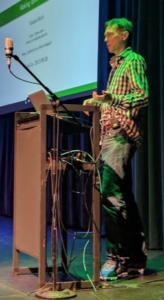 If you’re looking to level up, and want a chance to speak for more than five-minutes, perhaps you’re up for the Lightning Challenge?
If you’re looking to level up, and want a chance to speak for more than five-minutes, perhaps you’re up for the Lightning Challenge?
The catch is it’s up to the audience (using “modern technology”) whether you get the full eight minutes, or get cut off at four!
Sign up at the same place for this gamified format or come and observe the antics as the presenters try to win you over for more time.
Whether presenting or being entertained, get ready for the always entertaining Lightning Talks on Tuesday, Wednesday, and Thursday night. See you all there!.
For more details on submissions, see The Lightning Talks Submissions page
Presenter Interviews: Stephan T. Lavavej
In this week’s presenter interview, Kevin Carpenter welcomes Stephan T. Lavavej (STL) for a preview of his upcoming talk, Floating-Point charconv: Making Your Code 10x Faster With C++17’s Final Boss. Stephan discusses achieving a 3x to 10x speed up with charconv in C++17.
Join us again next week for another CppCon 2019 presenter interview.
Presenter Interviews: Kate Gregory
In this week’s presenter interview, Kevin Carpenter welcomes back Kate Gregory to preview her upcoming talk Naming is Hard: Let’s Do Better. Kate’s talk will discuss how bad we as C++ developers can be when it comes to naming things and how we could improve.
Check back next week for another CppCon 2019 presenter interview.
#include<C++> Sponsorships
#include<C++> is accepting applications for sponsorship to CppCon 2019.
Sponsorships will c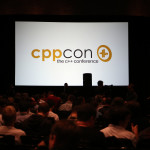 over registration, travel, accommodation, and both the Meet the Speakers Banquet and the #include<C++> Celebration Dinner.
over registration, travel, accommodation, and both the Meet the Speakers Banquet and the #include<C++> Celebration Dinner.
Applications are open through August 16th, to any candidate from an under-represented background with regard to the usual CppCon attendees.
The sponsorships are crowdfunded through a GoFundMe campaign that has not quite yet reached its funding goal. Please consider donating to show your support for this sponsorship opportunity.
[Sponsorship Application Form]
#include<C++> Celebration Dinner
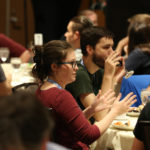 Join members of #include<C++> for a celebration dinner on the evening of Wednesday, September 18th. Meet other attendees who value inclusion and diversity, and network with some of the most influential members of the C++ community. If you are alone at the conference, be sure to come to the dinner to meet people and feel more connected. If you’re “the only one” from your team come and connect to a larger group and share advice and support.
Join members of #include<C++> for a celebration dinner on the evening of Wednesday, September 18th. Meet other attendees who value inclusion and diversity, and network with some of the most influential members of the C++ community. If you are alone at the conference, be sure to come to the dinner to meet people and feel more connected. If you’re “the only one” from your team come and connect to a larger group and share advice and support.
 After a buffet dinner there will be a panel discussion moderated by Kate Gregory, and then there will be more time to strengthen friendships and learn from each other. It will be a special evening – please be part of it!
After a buffet dinner there will be a panel discussion moderated by Kate Gregory, and then there will be more time to strengthen friendships and learn from each other. It will be a special evening – please be part of it!
Note: if cost is an issue for you, please contact #include<C++> to apply for a scholarship to the dinner. Limited numbers are available. If you are able to contribute to the scholarship fund and ensure another attendee is able to benefit from the dinner, they’d love to hear from you, too.
(This option was added to registration late, so attendees that registered early might have missed it. Since it is a stand-alone registration option, just register again selecting only this item.)
You can register here.

